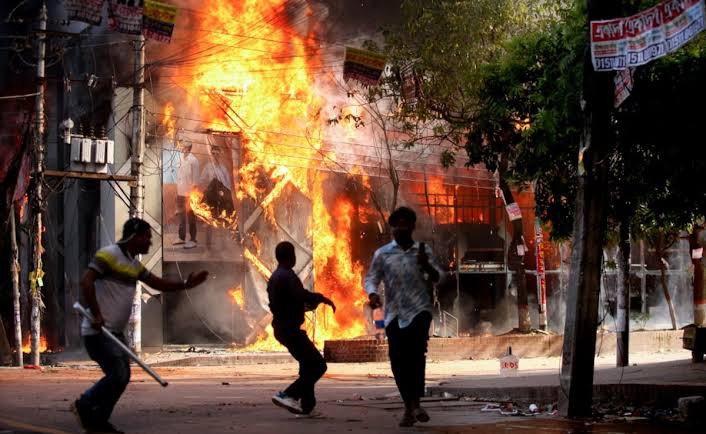11/07/2025

Concerns grow over election violence
Staff Correspondent | Published: 2025-11-07 12:29:18

As Bangladesh edges closer to the 13th parliamentary election, political tension is rapidly escalating across the country. The Election Commission is expected to announce the schedule in early December, but unofficial campaigning has already begun — and election-related violence has left at least 11 people dead so far, including 10 in October alone.
On Wednesday, gunfire erupted during a campaign event for BNP’s potential candidate for Chattogram-8, Ershad Ullah, in the city’s Hamzarbagh area. The attack left Ershad and four others wounded and killed alleged local gang leader Sarwar Hossain Babla, 43. Later that night, two rival BNP factions clashed in Raozan, leaving several injured, including five with gunshot wounds.
Authorities claimed the Chattogram-8 incident stemmed from a feud between two armed groups, not directly from political rivalry.
Police Headquarters AIG (Media) AHM Shahadat Hossain said officers were working to prevent violence before, during, and after the election. “We’re giving special importance to recovering illegal firearms,” he said.
Security concerns remain high. Before being ousted by a mass uprising, the former Awami League government issued a large number of firearm licences. Many weapons looted from law enforcement agencies during the uprising also remain missing, raising fears of further unrest.
Human rights organisations say election violence has been a recurring feature in Bangladesh’s political landscape. None of the eight parliamentary elections held since 1991 were free from bloodshed. Local government polls have often witnessed even higher levels of violence.
The 2008 election under the army-backed caretaker government was the least violent, though political tensions were high. In contrast, the 1996 February polls saw 141 people killed as most opposition parties, including the Awami League and Jamaat-e-Islami, boycotted the vote demanding a caretaker system.
In 2001, more than 50 people died, with post-election attacks targeting minorities. The 2014 polls, boycotted by the main opposition, left at least 21 dead and saw 596 polling centres suspended due to arson and clashes. In 2018, 22 people were killed and more than 2,000 injured during a 21-day campaign period.
Rights group Human Rights Support Society (HRSS) reported that between November 15 and January 15 of the one-sided 2024 election, at least 18 people were killed and more than 2,200 injured in election-related violence.
Human rights activist Abu Ahmed Faizul Kabir said political intolerance and impunity continue to fuel violence. “Candidates have begun campaigning, but it’s alarming that gunfire and deaths are already happening,” he told reporters.
“We must end this cycle. Political leaders need to control their activists and ensure accountability,” he added.
Experts point to several root causes of election violence — deep political mistrust, intolerance, dominance struggles at the local level, and weak law enforcement. The easy availability of illegal firearms and the Election Commission’s perceived lack of neutrality further worsen the situation.
They warn that continued violence undermines democracy by discouraging voter participation and threatening human rights. The destruction and unrest also damage the economy and deepen social and political divisions.
“Every election leaves a trail of fear,” said one political analyst. “Unless Bangladesh breaks this culture of hostility, no poll can truly reflect the people’s will.”
Editor & Publisher : Md. Motiur Rahman
Pritam-Zaman Tower, Level 03, Suite No: 401/A, 37/2 Bir Protik Gazi Dastagir Road, Purana Palton, Dhaka-1000
Cell : (+88) 01706 666 716, (+88) 01711 145 898, Phone: +88 02-41051180-81